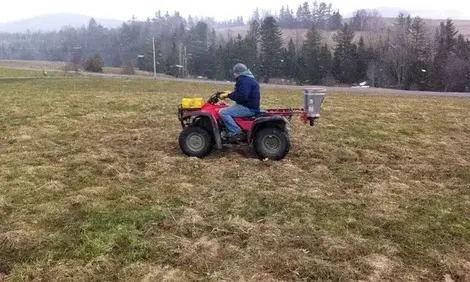



UK Pilot Badger Culls Still Divide Opinion
ANALYSIS – The National Farmers Union has confirmed the start of pilot badger culls in the south west of England this week.Marksmen have been sent out across farmland in west Somerset to reduce badger populations due to fears around them carrying tuberculosis.
The decision has sparked controversy and a rift between animal rights activists and supporters of the cull who say controlling badger populations will reduce the amount of tuberculosis in cattle.
Scientific evidence can be used to argue both for and against the cull. Nevertheless the culls are to go ahead, which is polarising communities in Gloucestershire.
Roger Mortlock, Chief Executive of Gloucestershire Wildlife Trust said: "The focus on free shooting badgers at the expense of other solutions to eradicating Bovine TB is polarising communities in Gloucestershire.”
Politicians have said they expect a degree of opposition and that protestors are well within their right to express their opinions within the law.
Many oppose the cull on the grounds of perturbation, arguing that shooting badger populations will be displace numbers, serving to exacerbate the spread further.
In a release this week, the Badger Trust criticised authorities for ignoring ‘cattle-to-cattle’ infection for decades. Wildlife groups say that this is the principle cause of spread and the culls will not work for this reason.
Badger Trust chairman David Williams urged people living in the designated pilot cull areas to listen for shooting and be on the watchout for injured badgers.
The Royal Society for the Prevention of Cruelty to Animals (RSPCA) has refuted claims from farming groups that the successes of culling badgers in Ireland, possums in New Zealand and deer in Michigan, US, is proof that it will work in the UK.
They believe that differences in disease testing, cattle density and badger populations are among the main reasons why the instances of culling abroad are not worthwhile reference points.
This view is not shared by many within the English livestock farming community who witnessed over 28,000 head of cattle slaughtered because of bovine tuberculosis last year.
Stephen James, NFU Cymru said: “We have seen this week that England is moving forward with pilot culls. In New Zealand it was possums and after a long-term strategy they have reduced TB from 1,700 cattle herds in 1994 to less than 200 affected herds in 2011.
“In Ireland, a country similar to England and Wales, they share the same wildlife host, the badger. Ireland has seen TB in cattle cut by a third after culling badgers to prevent this disease.”
Anti-cull protestors have repeatedly called for badger vaccinations as an alternative to culling. This has been proven to be a costly process.
Recent figures reported by the Welsh government showed north Pembrokeshire badger vaccination projects that vaccinating costs over the last five years have totalled £5.76 million.
Mr James expressed disappointment and anger this week at the misspent money which could have been spent on protecting healthy badgers.
“We know it has cost over £662 to vaccinate each badger in the first year of the vaccination programme and vaccination will need to be repeated annually over a five year period,” said Mr James. “Vaccination will have no benefit to the significant proportion of badgers in the area already suffering from this disease.”
Meanwhile, the government has said that if a 'workable vaccine' for either cattle or badgers existed then it would be used. Defra Secretary of State Owen Paterson repeated that the vaccine is 'years away' from being ready and that UK agriculture can not afford for the situation to get worse.
In a letter to farmers this week, NFU President Peter Kendall said that the subject is a controversial one, admitting that some will always oppose the culls on principle.
Culling tens of thousands of cattle each year cannot be allowed to continue if the disease remains in wildlife ‘uncontrolled’, he added.
Michael Priestley
News Team - Editor
Mainly production and market stories on ruminants sector. Works closely with sustainability consultants at FAI Farms



